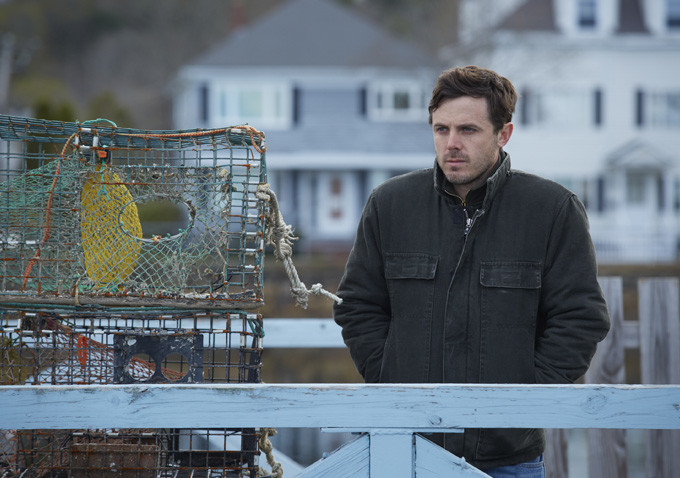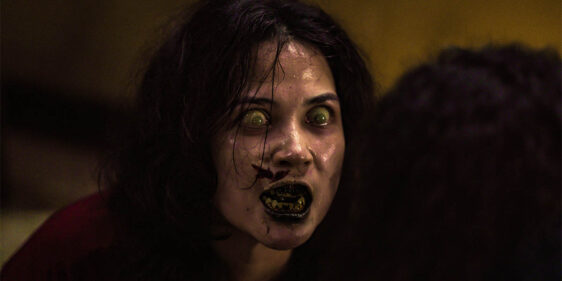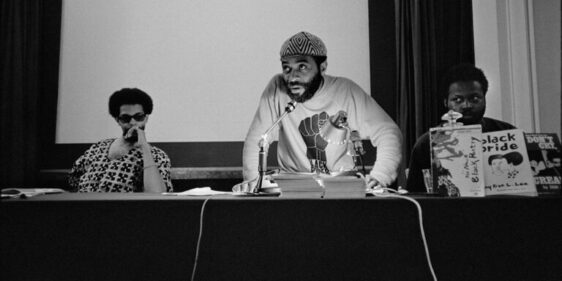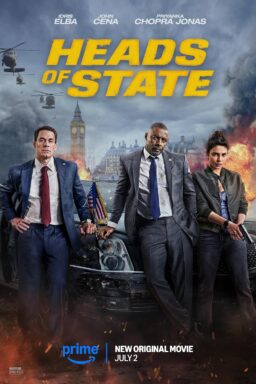This interview was initially published after the world premiere of Kenneth Lonergan’s “Manchester by the Sea” at the Sundance Film Festival this past January. The film is released in select theaters tomorrow.
Few films have so far created a (richly-deserved) buzz among Sundance viewers than Kenneth Lonergan’s “Manchester By the Sea,” which our very own Brian Tallerico called masterful, and Amazon recently scooped up with a $10 million distribution deal. A truly top-tier title in a festival that often features characters exploring grief and loss to various depths, Lonergan’s devastating tale tells of a janitor (Casey Affleck, in an undoubtedly career-best performance) who returns to the title hometown to face a traumatic past, including a marriage to Randi (Michelle Williams). His brother Joe (Kyle Chandler) has just suddenly died, forcing Affleck’s isolated character to take care of his nephew in Manchester, while the two find their own ways to live with such life-changing loss. Mixing the family intimacy of his directorial debut “You Can Count on Me” with the profundity of his second film “Margaret,” Lonergan confirms himself as a master filmmaker, even with only three projects on his resume so far.
RogerEbert.com spoke to Lonergan in Park City the day after “Manchester By the Sea” had its world premiere. We discussed where the original idea for the film came from, his interest in exploring emotional truths, maybe cutting out his own cameo and much more.
Did you watch the film during its world premiere? How did it feel after the extensive process, of having not directed a film in a long while?
I have been doing a lot of other things. I did two plays, and then I wrote “Howard’s End” for the BBC, and I wrote a TV pilot that never took off, so I’ve been doing things other than films. And I’ve been writing this script, which took a while. It’s not that I mightn’t been lying in my bed depressed … we only started shooting this a year ago, so the road to making the film and getting here hasn’t felt that long. However, “very good” is the short answer. Wonderful. I was very happy, the actors were happy. The movie could use a little work, I think.
As someone who grew up in Massachusetts, close to where you shot the film, I’m curious as to why you chose this part of America as your canvas.
The basic idea of the movie was brought to me by John Krasinski and Matt Damon, and that’s where they set it. So I said, “Sure.”
When did this happen?
Matt said at the premiere that it was eight years ago, but I don’t think so. We don’t really know. I think of it as three years ago but that can’t be right, either. Three-to-four years ago is what I’m hoping it was.
Did they have the idea of where the story goes concerning trauma, and loss?
Just the basic story of the main character having suffered a loss, moved out of hometown, brought back to his hometown by his brother and given guardianship of his nephew is what they brought me. And they had some more details that I then moved away from, but that was the basic idea.
In terms of you exploring trauma—you did it previously with “Margaret” as well—what interests you about the topic?
It’s really funny because when you’re writing something, you don’t think about it in terms of the big word for it. I just think, “Oh, that sounds really interesting, a character like that in a situation like that.” Or in “Margaret,” a girl who is responsible for an accident like that, and has nowhere to turn and nothing to do with it, and then finds out that nobody else is going to do for her what she needs done, so she has to do it herself, and then all the expanding things that happened. And then—it turns out later you are writing about trauma. But if you start by writing about trauma, you’ll end up writing about nothing.
You saw “Manchester By the Sea” as a story of a guy going through the steps that lead him nowhere.
I was interested in someone who has endured something that was unbearable, but because of his attachments to the rest of his family, he can’t simply disappear. My fantasy always has been—I have a daughter—my fantasy has always been that if she lost her life I would kill myself. Because I couldn’t bear to be alive. That may or may not be true, I certainly hope I never find out, and you’re not even supposed to say things like that, but that’s the thought you have as a parent. And so, how people survive what they survive is a mystery to me. It’s interesting that what causes that amount of anguish, and can help you through it, is love, and you don’t feel that kind of pain unless you lose someone you love. But love is the only thing that can get you through that kind of distress. There are other situations in which love is of no use whatsoever, like when you’re being murdered and massacred by ISIS, it doesn’t matter how many people love you, they’ll still cut your head off.

But then when you’re talking about these fears, why do you personally choose truth to tell these stories?
I think it’s more interesting. It gives me a personal satisfaction, an aesthetic satisfaction. I like fantasy movies too, I love “Star Wars,” I love “Star Trek.” I love “Close Encounters of the Third Kind.” But I think in some way even those movies are expressing emotion through a fantasy. I’ve just always been interested in alter naturalism and seeing if you can make real life interesting enough to be dramatic, without enhancing it. Like, could you make a movie or write a play in which there’s no compression of time, there’s no enhanced event, it’s just real life? Would that be interesting enough to watch? And I still don’t know the answer to that, because quite a lot happens in this story, quite a lot happens in “Margaret.” In a way, quite a lot happens in “You Can Count on Me,” even though everyone said nothing happens, even people who like it say that. But a lot happens [in that film], their parents get killed in a car crash, he gets a girl pregnant and has to come back and get an abortion, a lot happens. If it had happened to you, you’d think you had a pretty wild month. Just because nobody robs a bank doesn’t mean there’s no plot. But everyone’s average day, even as a regular, safe, secure middle-class person like myself, maybe you, go through one week of minor difficulties, you’d be freaked out of your mind. I don’t see why that can’t be a drama.
It’s funny you mention “Star Trek.” As you’re a filmmaker who does appreciate language, there doesn’t seem to be an accident in having two guys with a Boston accent argue about “Star Trek.” Did you have a particular curiosity about working with the Boston accent?
Um, I’ll be totally honest, and it might and get me in trouble, but I never liked the Boston accent until I made this movie. My stepfather has a Boston accent which I love, but it’s an unusual one that I hadn’t really heard. I always felt that the North Shore accent was particularly jarring to the ear, until I made this movie and I spent the time up there and I heard a lot of it, and it just got better and better to me. I had to learn a little bit of it myself, because we had an accent coach, virtuoso accent coach who could just go up and down the coast with these minor variations the way she speaks. Incredible. Wendy Overly, really amazing. I have a pretty good ear, but not like that. So I really got to like the accent. And I don’t think—I know—that accents and all the different ways people express themselves both in the tonality and the words they use and the phrases they use, are so directly expressive of what’s going on with them emotionally and what’s going on between two people emotionally. It’s a source of endless fascination to me. I love accents, I love listening to people talk, I like to try to emulate it as accurately as I can.
Regarding your casting of Casey Affleck in the lead role of Lee: how did you get him to express what you wanted most from the character, especially in terms of the restraint within his performance?
Well, he’s an amazing actor and an amazing person. We’re very good friends now. We were friends before, but we’re very close now, I would say. I don’t know if he would agree because he’s frequently wrong about everything, so he might have the wrong idea about that too. But he has an amazing worker bee attitude towards the part he plays. We had the most interesting in-depth, interminable discussions about the character: where he was at, why he was acting this way in this scene, why he wasn’t acting one way in another scene, where he was later, why did he react to the kid. [Casey’s] first comment was that he felt he was being very mean to the kid, his nephew; he wasn’t being comforting about when his father died. In the beginning of the discussion months later, we knew how the character was getting through his days after this terrible thing that had happened to him, and we both worked out together where he was at. It’s easy for him to be mechanical and cut off from the doctors and nurses who are trying to express sympathy, but his nephew gets to him. So it’s about who gets to him and when, and what shakes him out of the routine that he’s established in order to survive what’s happened to him, was a source of really interesting and really productive discussions. We talked about it months before the movie started, we talked about it every day on the set, we talked about it even after he saw the movie. It was really interesting and I learned a lot doing that.
How exact do you plan films, not just with characters, but in directing? How exact do you imagine these projects?
It’s always … you have one idea. Well, ideally, you have one idea that works in your head. And then you start with that, and then other people come along and either don’t get it and you try to get them to it, or they have some other idea that is germinated from your idea or related to it, and it enhances it and makes it better. And then you build on it together. That’s the really fun part of that. That goes for every element of the film, of acting, cinematography, the sound mixing, the locations, everything. When that’s all going well, it’s really fun. But I like the actors to stick to the dialogue as best they can, some pieces of dialogue I don’t really care that much, some I really do care, I couldn’t say why, it depends on the line. But I usually feel like [actors] should work within the dialogue and not outside of it. But apart from that, the behavior and how you shoot it, and where the emphases go and in the editing of course too, it’s all, “I know this works, and where can I go from there?”
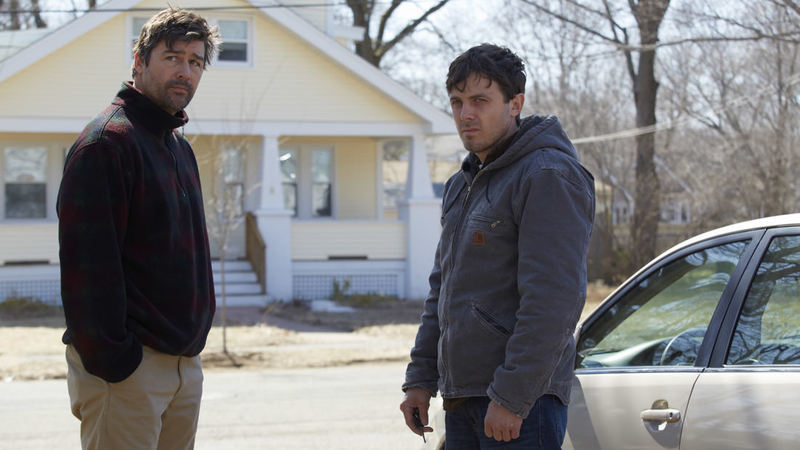
As a playwright and screenwriter, what is your attitude when going into the editing room?
It’s been different every time. I have only done three movies. The first movie I was so nervous on the set because I never directed before, that when I got to the editing room it was a complete and utter relief because it was just like writing. All the materials were there, it was like writing a script and then trying to make it the best version of it. I had all the materials, the editor Anne McCabe and I worked on the individual scenes and put them together, we stepped back and looked at them, the same as you write a bunch of scenes and then read the whole act of a play. You notice things, go back. So, it was a breeze. It was really fun and easy and familiar to me. “Margaret” was so challenging because there are so many balls to keep in the air, but it was really fun too, in a different way. Again, you just have to keep the whole thing in your head, but I had a very clear idea of how to edit that too. But the trouble came from outside. But I knew what we were doing, and finally, [we] more or less got to do what we wanted to do in the extended version, years after years of torture and misery and rescue from critics and friends and Twitter. That was very unpleasant, and then a miracle at the end. That multiple story form I am very interested in pursuing again.
This movie, I wasn’t sure how to edit. We went in and we just started playing the scenes. I had an idea for the beginning should be a bit of his routine, and I knew I wanted to establish the routine. The idea of starting the film the way it starts now was a later idea which I think works. It was more feeling your way through it, I think. It’s tricky because you have all of these takes and all of these performances that are great, and you have to decide what shapes a scene. Casey also makes you do hundreds of takes because he won’t stop until you tell him to go home, if there’s a somewhat better way to do it he wants to do it. And I’m a little bit that way too, sometimes. So, it’s hard to decide which one of his dozen great deliveries of this line to use. But eventually, a cohesion appears.
There are some interesting cuts throughout the film’s refined pacing, which are kind of jarring. I took it as a type of displacement, to keep things unpredictable.
Like what?
Well, with your cameo.
Oh [laughs].
You have that cameo, and then the camera briefly tracks you walking on your own after the altercation.
I’m not sure. Truthfully, you’re mentioning something that I don’t think should be in the … I’m not totally sure about that shot. My idea for that shot was to try to keep the presence of other people, not just to let them be the only people in the world. So, even though it’s me, to see that character go on to his life, and then we go back to our guys. I just think fills out the general sense of reality if you feel there are other human beings around, and not just people who we care about. But because it’s me, I think it may not quite work as well as it ought to, and that it should come out.
Along with grief, humor plays a crucial part in this film’s experience. Yesterday at the world premiere, it got some huge laughs.
If this movie didn’t have humor … first of all, any movie that has no humor in it has got to be a grand genius like … well, that’s not even true. Stanley Kubrick’s movies all have humor in them, so I take it back. I think I have never seen a humorless movie that was any good to me. The same way, with the possible exception of the Marx Brothers, where there’s no emotion, it doesn’t have to be a sudden sad scene, where there’s no emotion underneath … but there is an emotion underneath the Marx Brothers, there’s a love, there’s a joy of fun and mayhem and insanity that is present even though the characters never get emotional, that’s in their stuff. If there’s no emotion or humor, I don’t think you have any life.

